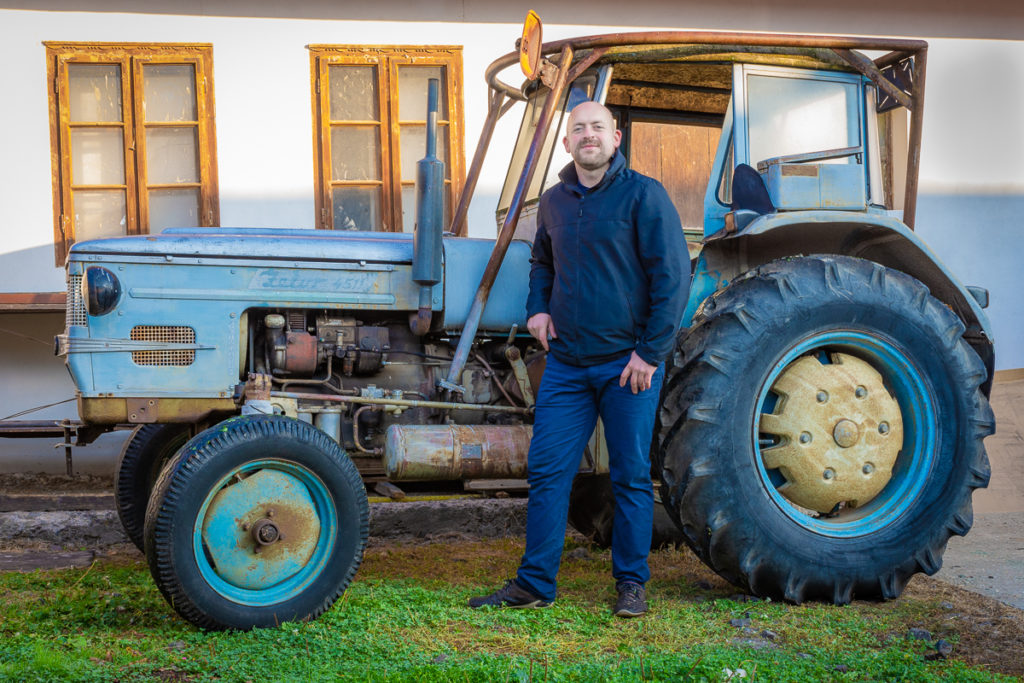Pivnica Čajkov

Family tradition, hard to find volcanic wines, ecological viticulture
The Čajkov winery (‘Pivnica Čajkov’) is a family-owned winery with rich history dating back to XVII century. The winery combines unique terroir on volcanic soils and re-discovery of traditional winemaking techniques with emphasis on as little intervention in the cellar as possible. The only experimentation is with the length of skin or lees contact, time of harvest and possible blending.
The winery’s main variety Pesecká leánka (Fetească regală) has a distinctive, slightly floral aroma with subtle notes of muscat. It is abundant with juicy ripe grapefruit flavors, sometimes with a delicate hint of dried apricots, and always accompanied with great acidity. As with all Čajkov winery wines, Pesecká was fermented spontaneously on its own yeast and matured on fine lees in inert vessels. There are many styles of Pesecká, from light, refreshingly flowery and dry, to rich, full and sweet, including of course special pet nat, and skin contact leánka. The grape enjoys its unique soil composition and is gaining a lot of attention and popularity in recent years.
The wines made from Pesecká are wild yeast fermented and there is no added yeast. Yet, the essential feature remains the same – it is the coexistence with the tuff soil in Čajkov. Pesecká leánka easily penetrates the deeper parts of the underlying rock, draws on its distinctive minerals and blends them into wine. It greatly benefits from the ability of tuff to accumulate heat and use it to ripen.
The winemaker Marek Uhnák developed a special bond with Pesecká leánka. He experimented with combinations of production procedures from strictly reductive to oxidative, coupled with a number of preparations, blending grapes from various vineyards, wine cuvées, and complicated cultivation of botrytis-affected grapes. Marek totally attuned to Pesecká leánka and her terroir. The basis of his winemaking is organic farming, resulting in unfiltered and completely natural wines.
Vineyards
The vineyards are set at the foothills of Štiavnica Mountains with its peak – Sitno. They are spread mostly over tuffs and andesites. Soft tuff is volcanic ash and hard andesite is volcanic lava. Volcanic tuff is a type of rock which consists of fused volcanic ash ejected from a nearby volcano ‘Sitno’ eruption. The volcanic soils create unique conditions for viticulture with optimal drainage and water retention due to abundance of porous stones, which supports vines in hot summer droughts. Volcanic soils perfectly absorb water, gases, and oxygen that are subsequently available to grapevine roots penetrating the volcanic bed. As a result there is no lack of nutrients, especially the essential minerals such as magnesium, calcium, potassium, iron and sodium.
Na Múrach (‘Grand Wall’) (Pesecká leánka)
The vineyards are cultivated ecologically, manually, without a tractor and heavy machinery that could burden the land. The soil is a very light, tufted tuff without the ability to keep rain water, and the vineyard has to form a massive root system that is capable of pumping not only the underwater but also the salt minerality of the volcanic ash or tuff.
Sádowie (Devín, Frankovka, Pesecká leánka)
Sádowie is the ideal compromise between accessibility and altitude. It is high enough to not suffer from spring frost, south oriented, with long sunshine, intense and windy air flow that prevents moisture and steam to create an ideal environment for diseases.
Slávičie údolie (‘Nightingale Valley’) (Pesecká leánka)
The vineyard is in a lower region on a trellis due to the possible risk of spring frost. In addition to the predominant Pesecká leánka, there is also Bratislavská leánka and a number of unidentified forgotten varieties that are processed together with leánka.
The Čajkov volcanic terroir is indeed unique. The underlying rock and slopes are perfect fit, and it gives good yields even in the worst years. The Čajkov leánka varieties superbly emulate the environment, soil, region, and the variety itself. This is exactly what the terroir is all about!




